The Taiwan Strait was turbulent, and the People's Liberation Army "encircled Taiwan" military exercises for six consecutive days. On the evening of August 10, the Eastern Theater officially announced that "the joint military operation has successfully completed various tasks." The 3,000-word White Paper on the Taiwan Issue and China's Reunification in the New Era (hereinafter referred to as the "White Paper").
Combined with the full details of "The Party's Overall Strategy for Solving the Taiwan Issue in the New Era" (hereinafter referred to as the "Overall Strategy"), which is expected to be released at the 20th National Congress of the Communist Party of China at the end of the year, it shows that despite the recent experience of Nancy Pelosi (also translated as Pelosi) West or Polosi) had setbacks in his visit to Taiwan, but Beijing continued to push the reunification process at its own pace and never stopped.
One of the highlights of the "White Paper" not only reiterates peaceful reunification, but also emphasizes that "non-peaceful means will be the last choice made under last resort".
The instant commentary of "Hong Kong 01" pointed out that "the PLA does not have much time left for the United States and Taiwan."
Beijing's unification process is already on the verge of completion, how should we piece together its pace and timetable from various clues?
"Hong Kong 01" interviewed Shi Qiping, the first deputy secretary general of Taiwan's SEF and now a senior commentator of Phoenix Satellite TV. He studied and judged the authoritative news released by China and the United States. "Belly draft" of unification, and give Taiwan a waiting period of one to two years for negotiation and discussion. Between 2024 and 2027 should be a critical moment to decide the final "peace or war" in the Taiwan Strait.
Interview with Shi Qiping︱The "China Threat Theory" breaks the success of China's governance advantages and it will depend on time to prove the interview with Shi Qiping︱Pelosi's visit to Taiwan is out of political calculations, don't think it's for "liberal democracy"
Three Clues From Kissinger and the U.S. Top Executives
Including the recently held Straits Forum, the Shuangcheng Forum, the high-profile symposium on the 30th anniversary of the "1992 Consensus", and even the newly released "White Paper", Shi Qiping explained to the reporter of "Hong Kong 01", it is necessary to pay attention to the frequent A period of time will release the hope that the Taiwan issue will be handled as peacefully as possible.
The Taiwan side has always taken this seriously, but for Beijing, it still has to be done. Even if it is polite, it means that it stands on the stand of the Chinese nation and does everything it can to achieve "benevolence and righteousness."
Shi Qiping, a senior commentator of Phoenix Satellite TV who was born in Taiwan, judged in an exclusive interview with "Hong Kong 01" that from the high-profile commemoration of the 30th anniversary of the "1992 Consensus" to the official proposal of the "Overall Strategy for Solving the Taiwan Issue" at the 20th National Congress of the Communist Party of China, it may be Beijing's response to Taiwan The last call for peace.
(Photo by Zhang Junkai)
Similar observations to Shi Qiping were made by former US Secretary of State Henry Kissinger in an interview with the German magazine Der Spiegel.
He said full force would be used against Taiwan only after Beijing concluded that a peace process could never be reached.
What's more important is the next sentence, "We haven't gotten to this point yet."
In addition, Shi Qiping also cited two other points of view.
The first is that the current director of the US Central Intelligence Agency (CIA), William Burns, said on July 20 that he does not think Xi Jinping will immediately attack Taiwan after the 20th National Congress of the Communist Party of China this year (2022).
However, he also emphasized that Xi Jinping's determination to control Taiwan by force must not be underestimated; and in the next ten years, the further back in time, the greater the risk of the mainland attacking Taiwan.
Shi Qiping believes that every word of Burns has a very large amount of information. It is his judgment based on the most abundant and detailed information he has obtained, rather than casually speaking.
The second Shi Qiping quoted the military's point of view, especially Mark Milley, Chairman of the Joint Chiefs of Staff of the United States. He should be the person in the United States who has the most thorough understanding of the military strength of China and the United States. There is a certain degree of mastery in practice.
Milley said he did not expect a military conflict between the two sides of the strait in the foreseeable future.
This point coincides with Burns' view.
US Joint Chiefs of Staff Chairman Milley pointed out in a Senate hearing on May 3 that Xi Jinping has set a goal to prepare the Chinese military in terms of capabilities. This is not really an invasion, but the ability to occupy Taiwan. .
He added that this is a daunting task, and whether the CCP has that capability or not, it is a goal and is set for 2027.
(AP)
Milley also quoted two other U.S. generals in his testimony before the U.S. Congress.
One is the former commander of the Indo-Pacific Command, Philip Davidson, and the other is the current commander of the Indo-Pacific Command, John Aquilino. Both of them agree that a military conflict may break out before 2027.
Aquilino, on the other hand, was a bit more explicit, saying it could be any time until 2027.
Milley also revealed another important point, when he learned that Xi Jinping, as chairman of the Central Military Commission, asked the People's Liberation Army to be "sufficiently prepared" to resolve the Taiwan issue by 2027.
This time point is consistent with Milley's statement that the former and former commanders of the Indo-Pacific Command, who believe that the risk is high before 2027, and it is possible at any time.
The only difference is that Milley said when he attended the Aspen Security Forum at the end of (2021) that he did not think the mainland would take action against Taiwan in the near future. Time windows like 6 months, 12 months, or 24 months.
One is the current top U.S. intelligence chief who has all the information in one hand, the other is the current top commander of the U.S. military, and two U.S. military generals who are in charge of the Indo-Pacific Command are all authoritative sources who have provided the above information.
Coupled with Kissinger's remarks quoted above, Shi Qiping believes that it is the key to the key. Beijing will use force unless it believes that there is no hope for peace, but it is not at that point yet.
2024 to 2027: Decision and or battle critical moments
The next step in Shi Qiping's "unified deduction" is to link the three pieces of information that he considers very important, and then make a rough analysis and judgment on whether the situation in the Taiwan Strait is peace or war in the foreseeable future.
First of all, the time has been very clear, almost three perspectives believe that there will be no military conflict before and after the 20th National Congress, and more specifically, it will not happen in the last one and a half to two years.
Milley particularly emphasized that the time window is 24 months, which means that after 24 months, as Davis or Aquilino said, it is possible at any time before 2027.
As for why the time point is set in 2027?
Shi Qiping added, first, according to Milley, this is the time when Xi Jinping asked to be ready, that is, the timetable set in his mind; secondly, the reason why the timetable is set in 2027 can also be found in the "words". The reason for belief is that the 21st National Congress of the Communist Party of China was held, and it was the 100th anniversary of the founding of the People’s Liberation Army.
Here is a summary. According to what he believes is authoritative clues, Shi Qiping’s analysis and judgment are: Beijing will not immediately take action against Taiwan after the 20th National Congress, nor will it in the next two years, but it may be before 2027. And the closer you get to 2027, the greater the risk.
The Taiwan Affairs Office of the State Council and the Information Office of the State Council released the white paper "Taiwan Issue and China's Reunification in the New Era" on August 10, further reaffirming the fact and status quo that Taiwan is part of China, demonstrating the firm will of the Communist Party of China and the Chinese people to pursue the reunification of the motherland. Resolutely resolve to expound the position and policies of the Communist Party of China and the Chinese government in advancing the realization of the reunification of the motherland in the new era.
(file picture)
General strategy: a draft of the Taiwan question
Secondly, at this point in the deduction, there is still one most worthy of scrutiny.
Back to what Kissinger said, as long as Beijing judges that there is still a chance for peace, it will not rashly use force, but if they think that there is no chance for peace, they will use force, but it is not yet at that time.
So, how Beijing can judge whether there is no hope for peace or there is still hope, there must always be an objective criterion.
To answer this question, Shi Qiping set his sights on the upcoming 20th National Congress of the Communist Party of China in a few months.
He said that what the Twenty parties are most concerned about is the "General Strategy" for Taiwan, and its specific path is related to the "Two Systems Taiwan Plan" proposed by Xi Jinping in 2019.
It has been three and a half years since the "Two Systems Taiwan Plan" was proposed. At that time, Xi Jinping only lost a topic, but no one has a clue as to what the content is.
Shi Qiping reminded that the full name of the "Two Systems Taiwan Plan" should be the "One Country, Two Systems Taiwan Plan". Since the "One Country, Two Systems" plan has already implemented the "Hong Kong Plan" and the "Macao Plan", in Beijing's eyes, the third "Taiwan Plan" The content is to study together with Taiwan, how to implement the operation of "one country, two systems" in Taiwan after the reunification of the two sides of the strait.
Shi Qiping believes that the 20th National Congress of the Communist Party of China may introduce "the Party's overall strategy for solving the Taiwan issue in the new era". It should be the proposal that Beijing proposed to Taiwan in 2019 to jointly discuss the "Two Systems Taiwan Plan", but it has never been approved by the Taiwan side. After the response, Beijing unilaterally developed a set of frameworks, processes and strategies for resolving the Taiwan issue.
(Xinhua News Agency)
Taiwan's response has been cold-handed, or even ignoring, the "Two Systems Taiwan Plan".
Under such circumstances, Shi Qiping believes that Beijing is also psychologically prepared, so it is up to them to proceed first.
"After all, it involves both sides of the Taiwan Strait. Originally, I hoped that the two sides could work together to study what to do in Taiwan after 'one country, two systems'. You can give your opinions, and I will also give my opinions, discuss with each other, and reach a consensus. But you Taiwan Ignore it, I'm the only one who makes a draft as the first step."
"Even if this draft is not perfect, at least there is something here." Shi Qiping believes that in the past three and a half years, the Chinese mainland's Taiwan system is bound to make every effort to organize the "Two Systems Taiwan Plan".
To put it more bluntly, Shi Qiping believes that, regardless of whether the two sides of the strait are "peaceful" or "military," Beijing has promised to implement "one country, two systems" in Taiwan, and the way its "Taiwan plan" works is partly based on Hong Kong, partly with reference to Hong Kong. Or refer to Macau, and part of it is related to the special environment of Taiwan.
How to arrange military, political, and diplomatic aspects, how to elect political parties, etc., always need to be discussed in advance.
24 months: Beijing's last call for peace to Taiwan
In Shi Qiping's view, Beijing should have already studied the content of the "plan", and it is estimated that the "General Strategy" in three or four months will be a big dish that Beijing will bring to the table.
He reasoned that after the "General Strategy" was proposed, it would then call on Taiwan to discuss it.
Of course, Beijing is also prepared, and the Taiwan side may ignore it, or go against the grain, but it is not that they have no experience in dealing with it.
In 1982, Deng Xiaoping met with then-British Prime Minister Mrs Thatcher, emphasizing that "on the issue of sovereignty, China has no room for manoeuvre on this issue".
(Getty Images)
For example, Shi Qiping said that in 1982, Deng Xiaoping and Margaret Thatcher said, "Sovereignty is not an issue that can be discussed." later than 1984.
If by then you are not willing to talk to me, I reserve the right to act.
The Sino-British negotiation on the issue of Hong Kong's return began, and an agreement was reached in 1984. The two sides signed the "Joint Declaration".
In view of this, Shi Qiping estimates that the time Beijing will give Taiwan is about one to two years.
If Taiwan still ignores it, that is what Kissinger said, Beijing will "give up", and he has let the whole world know that I am "benevolent and righteous", and then put together the last piece of the puzzle to unify Taiwan.
Judging from the historical experience of the Sino-British negotiation on Hong Kong's return, Deng Xiaoping told Mrs. Thatcher, "We can wait another year or two for the announcement, but certainly we can't delay it for longer."
So, will this "belly draft" of Beijing's reunification of Taiwan also include the specific resolution time?
Shi Qiping responded, "I think it should be, or a little bit flexible, no more than a few years."
Shi Qiping concluded that he judged Beijing's "last call for peace" on Taiwan and the reasons for about one to two years. The time logic can be consistent.
Including the 24 months that Milley said, 2024, two years later, happens to be Taiwan's presidential election, which is probably the last chance.
When will Beijing finally complete the "last mile" of reunification?
Shi Qiping said, "This basically depends on Beijing and its comprehensive judgment on the situation in the United States, but the time frame is roughly the same, and it must be completed in 2027."
National Taiwan University Professor Shi Zhiyu: Taiwan's "Strategic Laying Down" ︱ Experts have said that after the military exercise, the "white paper" on the Taiwan issue was thrown away. The PLA has little time for the US and Taiwan. Imagination Breaking Taiwan Naval Exercise | The Eastern Theater Command will organize the Taiwan Strait Combat Preparedness Patrol Naval Exercise as usual after completing various tasks of the Taiwan Strait | Release the White Paper on the Taiwan Issue after a lapse of 22 years: The non-peaceful way is to finally choose Taiwan to treat the CCP as a "sick cat" Beijing may clarify the guilt of splitting the country︱Experts have something to say

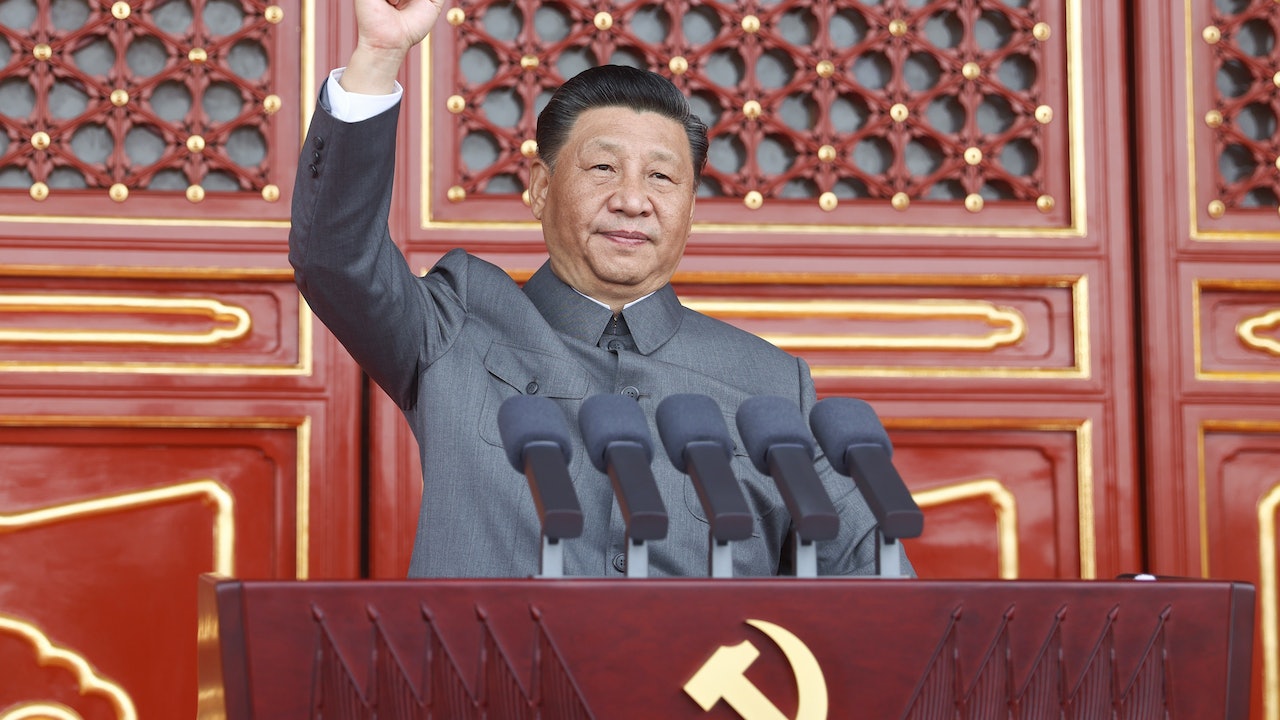
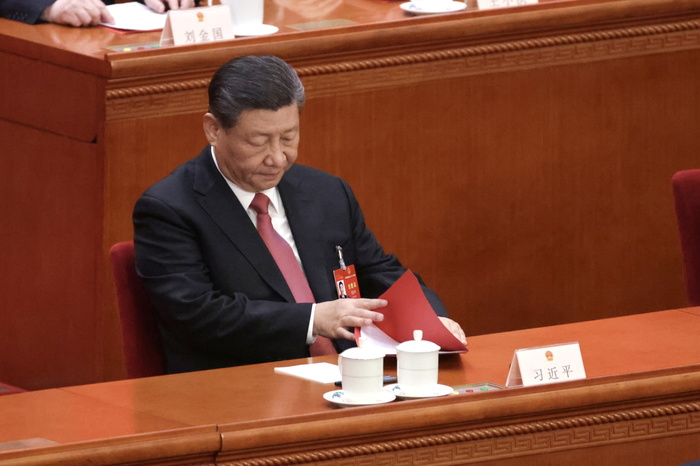
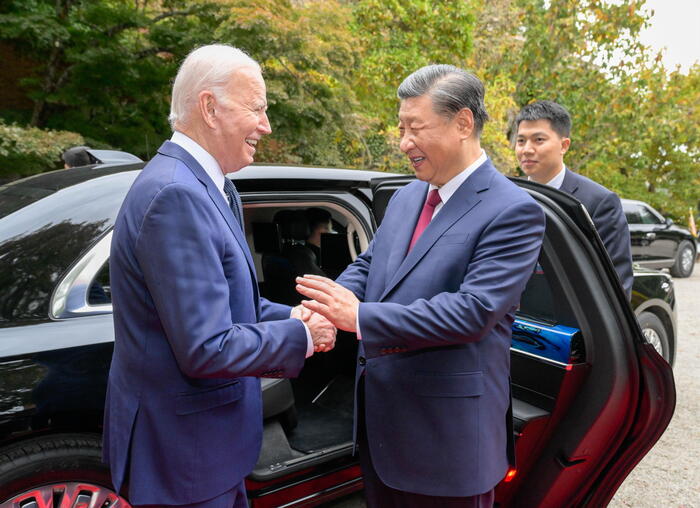
/cloudfront-eu-central-1.images.arcpublishing.com/prisa/FIJVMOBHZRWVDBKS3NAQ2M4JRE.jpg)
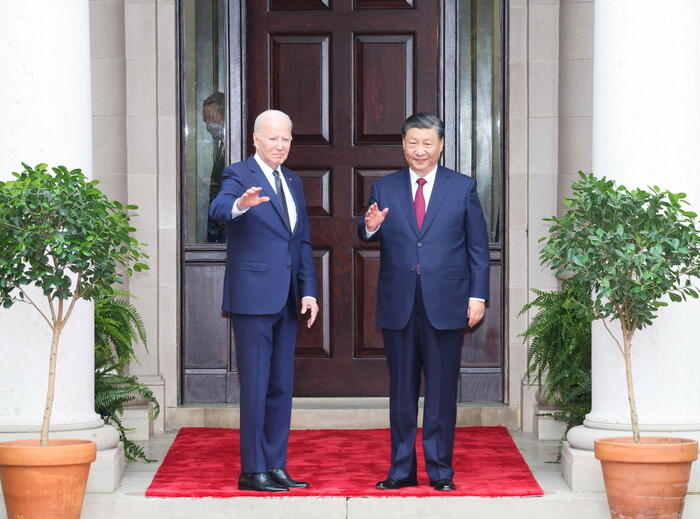

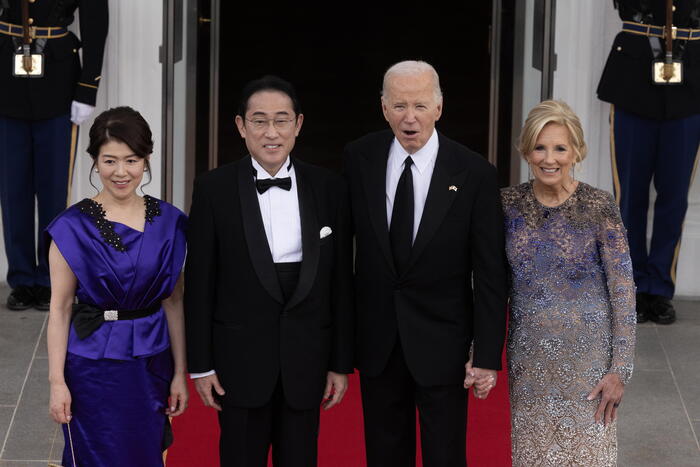
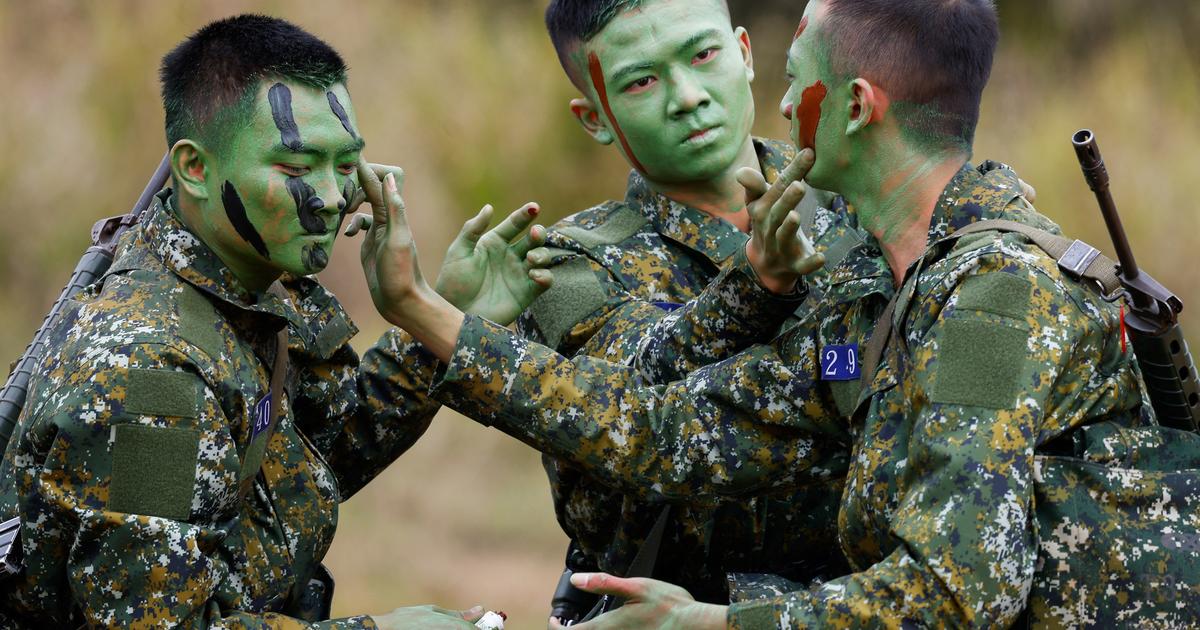
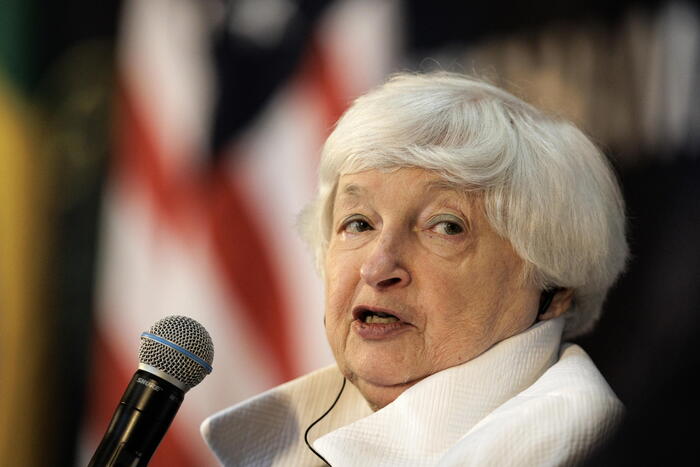



/cloudfront-eu-central-1.images.arcpublishing.com/prisa/KMEYMJKESBAZBE4MRBAM4TGHIQ.jpg)

